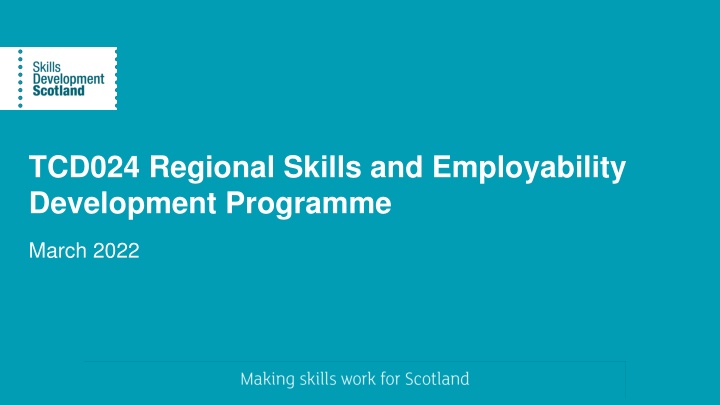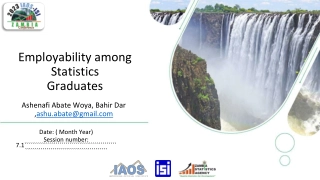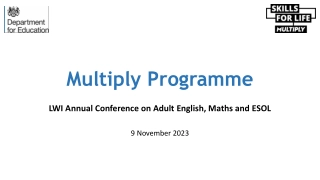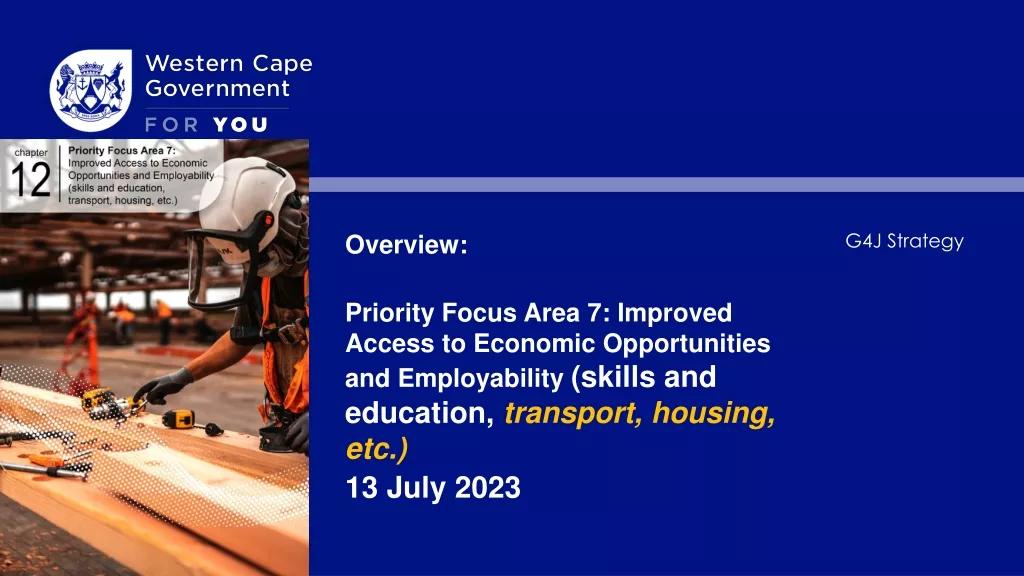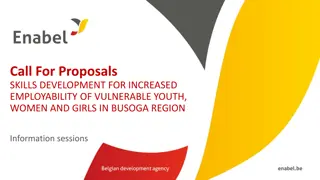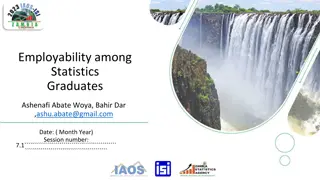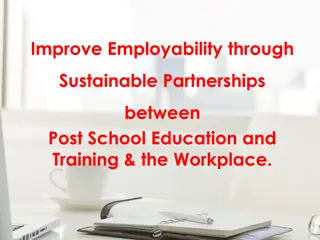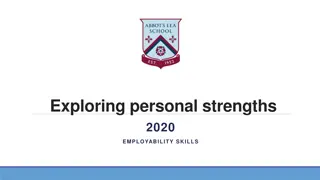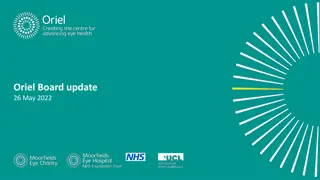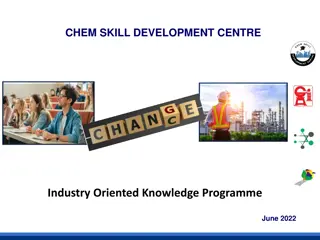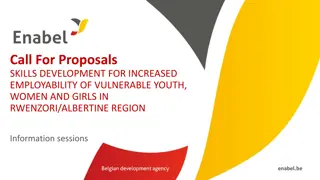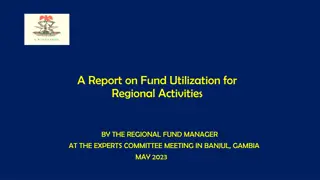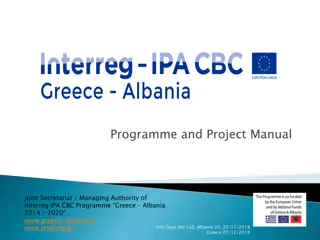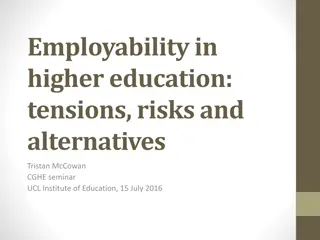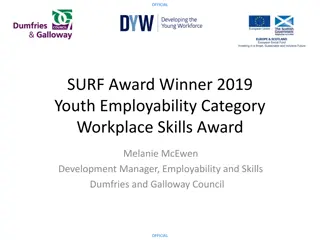Regional Skills and Employability Development Programme
This programme aims to address ongoing challenges in the regional landscape, focusing on inclusive growth, equality, and opportunities for all. With a two-phase approach, it seeks to tackle unemployment, economic inactivity, and skill development to drive sustainable economic growth.
Download Presentation

Please find below an Image/Link to download the presentation.
The content on the website is provided AS IS for your information and personal use only. It may not be sold, licensed, or shared on other websites without obtaining consent from the author.If you encounter any issues during the download, it is possible that the publisher has removed the file from their server.
You are allowed to download the files provided on this website for personal or commercial use, subject to the condition that they are used lawfully. All files are the property of their respective owners.
The content on the website is provided AS IS for your information and personal use only. It may not be sold, licensed, or shared on other websites without obtaining consent from the author.
E N D
Presentation Transcript
TCD024 Regional Skills and Employability Development Programme March 2022
Timeline 2016/17 2018 2019 2020 2021 Consultation: What projects could deliver a step- change to the regional economy, if there was a Tay Cities Deal? IG Assessment for TCD Approval of the Regional Skills & Employability Programme Regional Economic Strategy Action Plan (Covid recovery & renewal) Review of Regional Economic Strategy 2019-39 Enterprise & Skills Review Heads of Terms Cities Region Deal Tay Cities Region Deal signed Ask of Govts, includes a Regional Economic Strategy 2017-37 National Economic Transformation Strategy Skills & employability programme Regional Skills Investment Plan
Skills context Demographic trends Industry 4.0 Brexit Net zero carbon Nature of work Five Dimensions of Change 3
Skills and Employability Vision Ask to the Joint Committee: We seek approval of the Skills and Employability OBC and PM post Bring about the changes in skills and employability services Make long term, incremental changes to the skills landscape in order to deliver better outcomes for all A new collaborative, pan-regional approach that s achieves more inclusive, sustainable economic growth across the region
Skills and Employability Why? Address issues in the Region Challenging landscape Major ongoing skills and employability challenges Challenges of equality and inclusive growth Employers unable/unwilling to invest Uncertainty remains from the pandemic EU exit labour supply, increased costs Pockets of inequality Duplication of national programmes Support existing strategy and policy Project rationale Aligns with Fair Work and Inclusive Growth Aligns with RES through inclusive growth Regional strategic alignment through focusing on improving outcomes and opportunities for everyone Taking a 2 phase approach: Phase 1 will deliver five projects Phase 2 will tackle wider considerations
Programme Outcomes Objectives Outcomes An incremental reduction in unemployment and economic inactivity; Increasing the understanding and awareness of job and learning opportunities Employers reporting fewer skills shortages and gaps; Putting in place the support required to help more disadvantaged citizens; Individuals able to access training and employability support; Opening new and diverse talent pools to businesses; A long-term legacy of continued improvement in for the most disadvantaged people; Enhancing the ability of partners to work collaboratively to build a more inclusive, innovative, and future-proofed job market. Greater diversity of talent within our workforce.
Skills and Employability Phase 1 projects Project 1: Integration and alignment of employability services Skills Programme Manager Project 2: Life Sciences Biotechnology and Medical Technology Project 3: Hospitality training Project 4: Digital Skills Project 5: Supporting SME Skills
Skills and Employability Outputs and targets Targets Phase 1 Projects total Overall Programme total Total number of beneficiaries 3,100 5,000 Quality and sustainable new job opportunities as a direct result of this Programme Beneficiaries supported into sustainable (greater than 13 weeks), secure and quality employment 28 50 900 1,350 Businesses directly supported through this Programme 800 1,200 Number of businesses receiving support to 1) improve their understand the recruitment needs and challenges they face, and 2) increase their ability to access suitably skilled staff (as measured in the Employer Skills Survey) 600 900 Uplift in skills and employability - additional accredited training and skills improvements 450 675 Development of a pan-regional skills development and employability approach, built on enhanced cooperation, collaboration, and partnership working. N/A this will be measured through qualitative impacts (surveys, case studies, evaluation, etc.) In increasing workforce representation, the Programme will look to target specific underrepresented groups and those furthest from the labour market: Females - 50% of all beneficiaries 1,550 2,500 BME - 4% of all beneficiaries 100 200 Disabled - 10% of beneficiaries 300 500 Sustained increases in recruitment of and employability and skills development opportunities for people from deprived areas (i.e. intervention will target those furthest from the labour market across the region. 500 750
Summary We seek approval of the Skills and Employability OBC and Programme manager post Addresses the skills and employability challenges in the region Phased approach with 5 initial projects The skills and employability development programme will: Reduce unemployment and economic inactivity; Reduce skills shortages and gaps; Allow individuals to access training and employability support; Provide a long-term legacy of continued improvement in for the most disadvantaged people; Provide greater diversity of talent within our workforce. Further discussions with Partners on the detail of the Programme Governance.
Skills Programme Manager Address issues in the Region Challenging landscape We currently have uncoordinated and largely unconnected myriad of skills and employability provision across the Tay Cities region, planned, developed and managed at a local level We currently have a local oversight of the regional labour market issues and their potential solutions Constantly evolving national policy and programme landscape Differing employment markets and challenges across the Tay Cities region Objectives Timeline Drive the strategic skills and employability agenda across the Tay Cities region Enable skills and employability services to work better collectively. Develop a more efficient and effective offer to employment and upskilling. Focus the future direction of regional skills and employability activities. The programme manager post is programmed over the revised timescale for the programme from 22/23 to year 10 of the Deal.
Life Sciences Biotech and Med Tech Address issues in the Region Challenging landscape Lack of skills and up to date education and training to support sector growth Lack of inclusion within sectors :BAME, those with disabilities, those from deprived areas Growing productivity gap Brexit and covid impacts Education system disruption Lack of investment in education and training Meeting skills needs of new/ developing industries Objectives Timeline Provide pathways to fill skills needs of biotech, biomedical and agritech sectors Increase training placements within target sectors Develop new training and certification opportunities Produce a more diverse workforce Phase 1 Recruit staff and build partnerships Phase 2 Operational planning and work scheduling Phase 3 Qualification development, placement provision, outreach work
Hospitality Skills Address issues in the Region Challenging landscape Sector disproportionately impacted by Covid and Brexit 14.6% sectoral workforce EU nationals Major ongoing skills and employability challenges with c12,000 job demand to 2030 Talent attraction and retention Realigning sector perceptions Uncertainty remains from the pandemic Accommodation and food services GDP levels were >60% below February 2020 levels in December 2020 EU exit labour supply, increased costs Pockets of inequality Timeline Objectives Raising the perception of the hospitality industry through career pathways approach to attract retain and upskill current and potential workforce Putting in place the support required to increase workforce diversity and inclusion Enhancing the ability of partners to work collaboratively to build a more inclusive, innovative and future-proofed job market Taking a 2 phase approach: Phase 1 appoint project lead to engage industry to determine most impactful interventions Phase 2 - implement the plan to support the sector to emerge from Covid/ Brexit impacts
Digital Skills Address issues in the Region Challenging landscape Embedding skills to support digital and data-driven innovation across a wide range of sectors is essential to ensure that these sectors and their workforce can adapt and compete in the future economy. To help deliver people with digital skills capable of working from anywhere The issue is not about gaps in supply but duplication or even over-provision in some areas and a lack of an overarching regional role and governance to coordinate supply and demand Growing opportunities for specialist roles in digital and creative industries; 60% of digital technology roles employed in non-technology businesses. COVID-19 has substantially increased working from home, with expectations that 20-50% of jobs will continue to do so permanently. Assumption that all No One Left Behind (& Employability) activity will include provision of basic digital skills. Objectives Timeline To tackle inequality, introduce diversity into the digital skills pipeline; To deliver intermediate/advanced and professional skills; and To help deliver people with digital skills capable of working from anywhere. The project will have two distinct tranches: Tranche 1 from 2022 2025, and Tranche 2 up to 2029.
Supporting SME Skills Address issues in the Region Challenging landscape Lack of investment and uptake of employee training Significant skills gaps and low utilisation of existing skills, underemployment Productivity gap across region SME s make up c90% of regional economy Brexit and Covid challenges Lack of investment in education and training Business focus on survival FWDF limited impact on SME s Objectives Timeline Combining resources of colleges, universities and business support agencies to enhance support for SME s Raise awareness and promote benefits of upskilling to SME s Support diversity, fair work and resilience within SME base Phase 1 build working partnerships, MoU already in place Phase 2 Outreach and communication with SME Base Phase 3 Full operational phase with training delivery and upskilling underway
